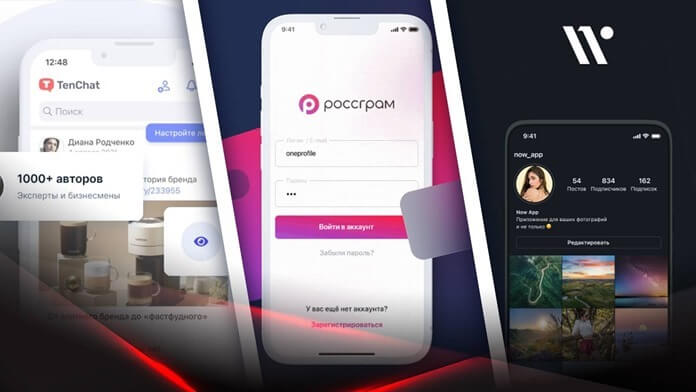Back in the distant pre-smartphone times, when the World Wide Web was still in its infancy, a record of the .ru domain appeared in the international database of national top-level domains. This day is considered to be the birthday of the Russian Internet; the significant event took place on April 7, 1994.
Since then, many megabytes have been downloaded, even more YouTube videos have been watched, and messages sent via messengers are countless. Currently, out of the population of the Russian Federation (almost 146 million people as of January 2023), 129.8 million people use the Internet - almost 90%! And almost all of them are mobile - according to statistics, out of these 129.8 million, 91.3% access the World Wide Web through their smartphones. On average, a Russian resident spends 7 hours and 50 minutes of their time on the Internet.
What do users do in RuNet – the most popular activities
 What is it that attracts people to the invisible system of data channels that span the entire world?
What is it that attracts people to the invisible system of data channels that span the entire world?
- In first place (84.3%) is searching for information on everything from sales news to cooking recipes or home improvement tips.
- In second place (66.4%) is communication. Messengers and social networks have long surpassed long-distance calls in convenience.
- Approximately the same number of people (66.1%) watch the news, slightly fewer (63.1%) are regular visitors to streaming services and regulars of online TV shows.
- People also listen to music, look for inspiration, play, study, virtually visit other countries and museums, and, finally, simply kill their free time. There are quite a few of the latter — 41.8%.
Of course, where there are such masses of people united by a common channel of access to information, there is also a monetary interest. E-commerce in Russia has developed rapidly - by the beginning of 2023, more than 40% of the total number of Runet users made a purchase online, 13.8% of them regularly use online price comparison services, and 14.7% order products.
Brand information plays a significant role in search queries – about 60% of Russians aged 16 to 64 who use the Internet carefully study information about a company and its products before making a purchase.
Prohibited social networks
 At the beginning of 2023, about 106 million Russians used social networks - this is about 73% of the entire population of the country. The most popular platforms were WhatsApp, VKontakte, Instagram (owned by Meta, recognized in Russia as an extremist organization), Telegram, TikTok and Odnoklassniki (from 80.9% to 45.1%, respectively). Facebook was used by about 30% of RuNet regulars. As for Twitter, the network's presence in the Russian expanses was small - only 11.6%.
At the beginning of 2023, about 106 million Russians used social networks - this is about 73% of the entire population of the country. The most popular platforms were WhatsApp, VKontakte, Instagram (owned by Meta, recognized in Russia as an extremist organization), Telegram, TikTok and Odnoklassniki (from 80.9% to 45.1%, respectively). Facebook was used by about 30% of RuNet regulars. As for Twitter, the network's presence in the Russian expanses was small - only 11.6%.
Unfortunately, not all of them have stood the test of politics. The brands of the American giant Meta – Instagram and Facebook – fell under the punishing hand of Roskomnadzor for disseminating calls for violence against Russian citizens. However, the Russian court decided not to ban WhatsApp – “due to the lack of functions for public dissemination of information”. Twitter was “restricted” in early March, and Linkedin – back in 2016, when the business social network refused to provide information about its users at the request of the Russian Federation.
In March, many iconic Internet companies left the Russian market: PayPal, Booking.com, Netflix, Spotify and others, as well as a number of gaming organizations: Activison Blizzard, Epic Games, Rokstar Games, Ubisoft, Steam and others. Some of these sanctions are “soft” - existing users can use the company's services or even pay via VPN, but it is impossible to create new ones.
Russian analogues of foreign social networks

If life is not sweet without a native social network, then Russians have two options: choose a VPN (our list of paid and free services) or find an equivalent that operates in Russia.
Instagram may be replaced by several services at once. At the end of March, Rossgram was presented to the public, although mere mortals will only be able to access the platform in April – so far, access is only open to major bloggers.
But the Now social network is already up and running; for now, basic functions are available in it – user profiles, the ability to comment and rate comments from others, a viewing feed, and the like.
And for Instagram confectioners who were left without their main sales channel, the Delivery Club delivery service offered to use its service for free until the end of the year. However, they will have to do the delivery themselves.
Facebook can be replaced by VKontakte, Odnoklassniki or the new social network that is gaining popularity – ЯRus. It has a feed that can be customized based on interests, news, the ability to “drag” videos from other video hosting sites (their list is quite extensive), upload your own video and, of course, photos of food and cats. The advantages are that the application is free, there is no advertising (I wonder how the developers make a living). The disadvantages are that there is no censorship.
Instead of Linkedin, TenChat may be useful – the same business network, only in the Russian version. In addition to discussing work issues, salaries, finances and the fate of the world, there is also a messenger, “smart” search on electronic trading platforms, search for lots from auctions and much more.
Perhaps, a sad fate awaits one of the most popular video services in the Russian expanses – YouTube. Google, which owns YouTube, has begun blocking Russian media channels and deleting “special operations” videos; even the channels of the State Television and Radio Broadcasting Fund have come under attack. Roskomnadzor has already expressed its opinion on this issue and recommended starting to transfer videos to RuTube.
However, the Russian platform does not yet have a video view counter, and it is not possible to leave comments. Some experienced Internet users believe that salvation may come from Asia and cite the example of TikTok.
If you don’t want to leave your comfortable place, another option is the peer-to-peer network Lantern, which should start working in Russia very soon (in just a few days). Information will be stored and downloaded not from centralized servers, as is the case now, but from other users’ computers – roughly the same principle as torrents. According to the creators, Lantern, unlike other VPNs, is very difficult to ban, and with the help of the service you can even gain access to services banned at the regional level – such as Netflix. The application can be downloaded from Google Play and the App Store. However, its rating is not very high – only 3.9 points – which raises some doubts.
Will Russia be disconnected from the Internet?
 From the very beginning of the "special operation", Russian Internet users were on edge: what if access "there" is cut off? Fuel for fuel was also added by the news that two backbone providers, Cogent and Lumen, refused to cooperate with the Russians. However, the position of the providers turned out to be akin to the European Union in matters of purchasing oil and gas: despite loud statements, both companies continued to calmly send and receive data from Russian clients.
From the very beginning of the "special operation", Russian Internet users were on edge: what if access "there" is cut off? Fuel for fuel was also added by the news that two backbone providers, Cogent and Lumen, refused to cooperate with the Russians. However, the position of the providers turned out to be akin to the European Union in matters of purchasing oil and gas: despite loud statements, both companies continued to calmly send and receive data from Russian clients.
As experts say, it is not profitable to cut off Russia's traffic - Rostelecom is actually a fast communication channel between the West and the East, and if it is cut, then the traffic will have to be sent across the ocean - and this is long and expensive. Moreover, if Russia's cable is cut, it means that the world network will be inaccessible to the former republics of the USSR - because they also receive the Internet through Rostelecom.
However, for the sake of scientific interest, let's try to consider the worst-case scenario: that an evil hand with scissors descends on the Internet artery connecting Russia with the rest of the world. Cut off one - well, it's painful, unpleasant, but there are others. According to Internet experts, in terms of the level of development, quality and speed of the Internet, Russia is second only to the United States. Yes, the connection will be bad, it will take some time to establish new ways of exchanging information, your favorite sites will load much longer than usual... but this can be solved.
Will there be a virtual iron curtain in Russia?
 Since November 2019, a law on a sovereign Runet has been in effect in Russia, adopted with the aim of protecting the internal Internet network from external threats.
Since November 2019, a law on a sovereign Runet has been in effect in Russia, adopted with the aim of protecting the internal Internet network from external threats.
In addition to regular cyber-attack countermeasure drills, promoting .рф domains, and creating backup routes for emergencies, operators must also install special equipment. These devices can filter traffic and make prohibited sites inaccessible without any options – even with the use of a VPN.
Experts are sure that Russia will not become a second China (with a developed internal network, with many convenient and well-thought-out applications of its own). At least for the first few years.
But not everything is so gloomy. There are about 3.5 thousand Internet service providers in Russia, and they all have connections both with each other and with foreign comrades. It will not work to just turn off the Internet by turning a magic switch – this process will be long and tedious, with a gradual cutting off of “Internet dissidents”. Most likely, the first to suffer will be the clients of the three largest operators – Rostelecom, Transtelecom and Er-Telecom. However, the Ministry of Digital Development itself claims that it is not going to disconnect anyone, and all the above changes are only for security purposes.
Material threat to Russian users
 However, unlike the questions of switching on/off, which fortunately remain purely hypothetical, a new threat has appeared on the horizon – and it is purely material. Such significant suppliers of Internet equipment as Nokia and Ericsson have left the Russian market. This means that the equipment fleet will not be updated, at least until measures to counter the sanctions are found. This is a direct obstacle to both the development of mobile networks and the maintenance of existing ones.
However, unlike the questions of switching on/off, which fortunately remain purely hypothetical, a new threat has appeared on the horizon – and it is purely material. Such significant suppliers of Internet equipment as Nokia and Ericsson have left the Russian market. This means that the equipment fleet will not be updated, at least until measures to counter the sanctions are found. This is a direct obstacle to both the development of mobile networks and the maintenance of existing ones.
Users of mobile Internet have already felt the impact of the sanctions: the average speed in LTE networks has dropped by 0.6 Mbit/s, and this is not the limit. The existing equipment will last for six months at most, and then there will likely be failures and deterioration of traffic. However, the Ministry of Digital Development remains optimistic and assures that everything will be fine.
In the meantime, network mobile operators are canceling unlimited tariffs to reduce the load on equipment; we should expect an increase in prices for mobile tariffs. This situation will affect wireline operators to a lesser extent: their equipment has a greater resource than mobile stations. However, prices for wireline services will most likely also increase.














Оставить Комментарий